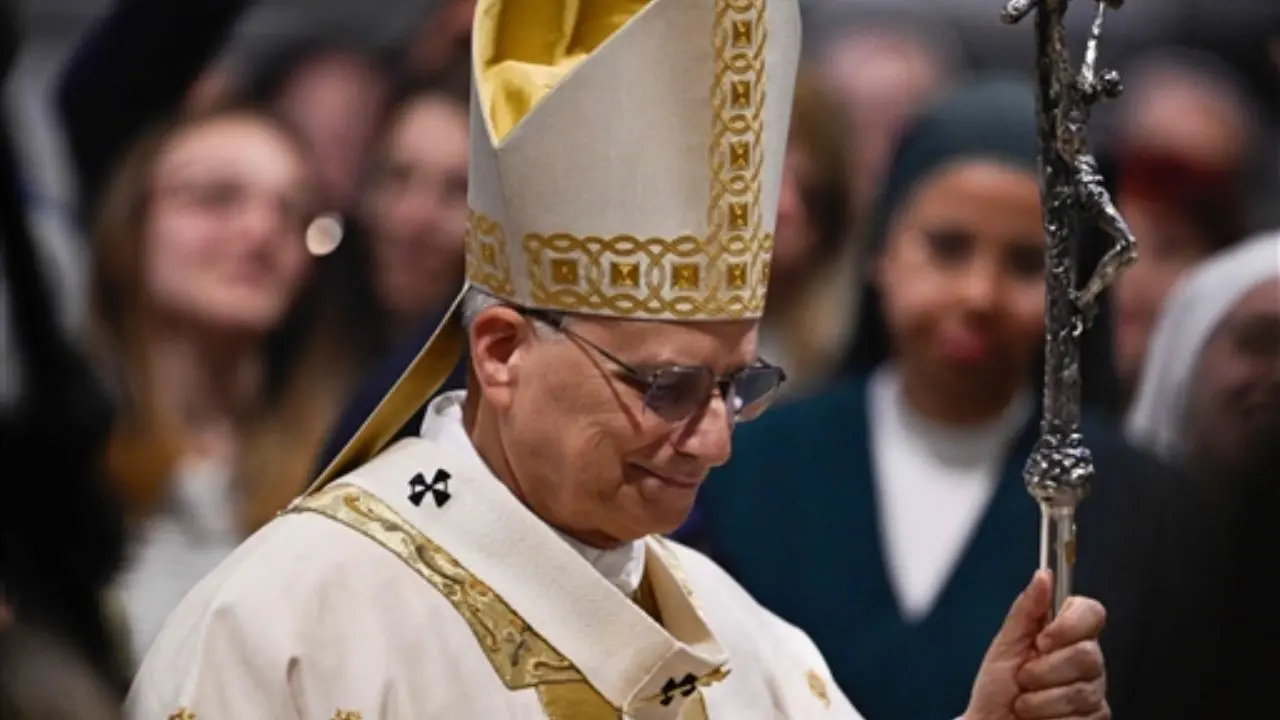Pope prays for Chinese Catholics to remain in communion with Rome
Pope Leo XIV on Sunday asked for prayers for China’s Catholics to remain in communion with the Holy See, making his first public comments on one of the most challenging foreign policy. Pope Leo said in the churches and shrines in China and throughout the world, prayers have been raised to God as a sign of solicitude and affection

Pope Leo XIV on Sunday asked for prayers for China’s Catholics to remain in communion with the Holy See, making his first public comments on one of the most challenging foreign policy issues of his new papacy, reported the AP.
History’s first American pope recalled that the Catholic Church had marked a special feast day on Saturday to pray for the Church in China.
Pope Benedict XVI had introduced the feast day as part of his efforts to unify China’s estimated 12 million Catholics, who have long been divided between an official, state-controlled church that does not recognize papal authority and an underground church that has remained loyal to Rome despite decades of persecution, the AP report stated.
On the feast day, Pope Leo said, “In the churches and shrines in China and throughout the world, prayers have been raised to God as a sign of solicitude and affection for Chinese Catholics and their communion with the universal Church,” according to the AP report.
Speaking from his studio window during his noontime blessing, Leo prayed that Catholics in China and elsewhere “obtain the grace to be strong and joyful witnesses of the Gospel, even in the midst of trials, to always promote peace and harmony.”
Pope Francis had advanced Benedict’s unification efforts further by approving a controversial 2018 deal regarding the nomination of bishops. Although the details of the agreement were never made public, it allowed the state-controlled church to have a say in the appointment of bishops, while Francis insisted he retained veto power over the final decision.
However, the deal has been criticized by some -- especially among conservative Catholics -- for giving in to Beijing’s demands and allegedly abandoning the underground faithful in China. The Vatican has defended the agreement, saying it was the best compromise possible, and it has been renewed periodically.
Pope Leo will now have to decide whether to continue renewing the accord. There have already been apparent violations on China’s part, including unilateral bishop appointments made without papal approval.
The issue came to a head just before the conclave that elected Leo pope, when the Chinese church proceeded with the preliminary election of two bishops—a step that typically precedes official consecration.
According to the Fides missionary news agency, Cardinal Stephen Chow, the Archbishop of Hong Kong, said Pope Leo had told him that he had visited China several times and had come to understand Chinese culture and society. These comments were shared by Chow in his diocesan weekly newsletter following the conclave.
Chow added that he expected Pope Leo to continue along the path set by Pope Francis regarding the Church in China. He also mentioned giving Leo a small statue of Our Lady of Sheshan, a Madonna figure especially venerated by Chinese Catholics and celebrated on the feast day, May 24.
Chow, a Jesuit, said he had urged Pope Leo not to forget the Church in China and the Chinese people. “He nodded his head to indicate that he will not forget,” the newsletter said, as quoted by Fides.
The Vatican has been trying for years to improve its relationship with China, which was officially severed more than seventy years ago when the Communist government came to power.
Tensions have largely centered on China’s insistence on having the sole authority to appoint bishops as a matter of national sovereignty, while the Vatican insists the pope alone has the right to appoint successors to the Apostles.
The 2018 deal aimed to unite China’s divided Catholic population, regularize the status of seven bishops previously unrecognized by Rome, and ease the long-standing rift between China and the Vatican.
(With inputs from AP)

 The Insiders
The Insiders 





